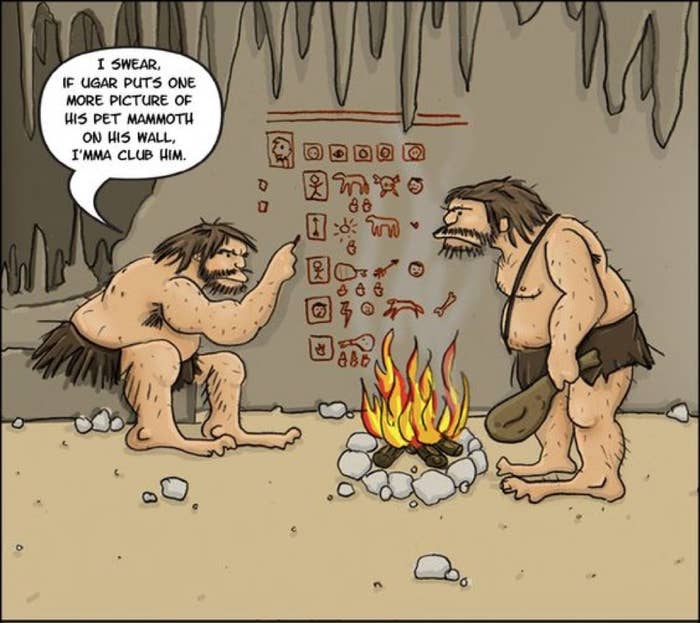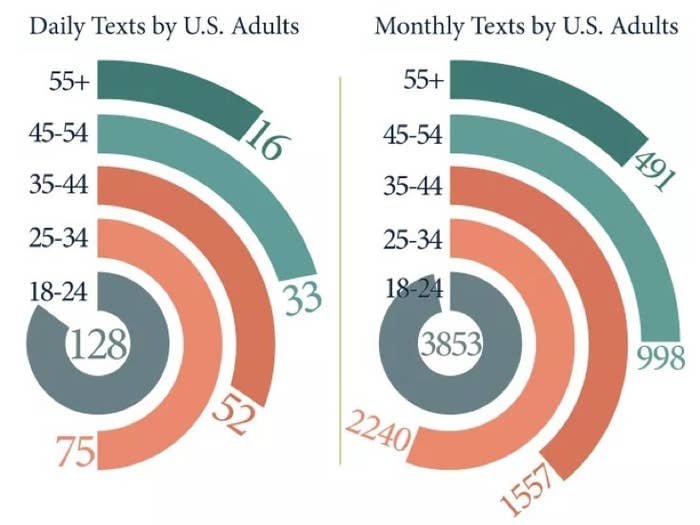
Facebook, Instagram, Twitter, Tumblr, Blogger, Buzzfeed, even Google are words that did not exist when I was born. A "hashtag" was never followed by letters but words on the back of a sport's jersey; I grew up knowing it as a number sign. When a person referred to a "text," they referred to a tome, diatribe, novel, book, poem, etc., not a quick message response via a cell phone. Forget about cell phones, the first cell phone I had was the Nokia 3310, which had the illustrious feature of the game snake, whose graphics are laughed at by those in the gaming world today. I grew up in this technological age, evolving with the products. I saw the iPhone when it first came out and witnessed the launch of the iPhone 7 just this past month. This rapid growth of technology over the past few decades evolved the way people communicate. People no longer feel a need to communicate face to face and instead rely mostly, if not solely, on means of technology to connect with others losing a sense of humanity.
Texting has eliminated the need for voice calls and in doing so has stunted the psychological growth of today's youth. Based on an article from Time magazine, psychologists are not just worried about children's frivolous use of different forms of technology, but rather the impact these devices have on their interpersonal skills. The issue lies in the fact that these skills are not yet fully formed when children are receiving these technological devices and in turn are being negatively imprinted by them. For example, an adult that receives a cell phone for the first time in his or her twenties, understands how to hold a face to face conversation or even a voice phone call prior to receiving the phone. A twelve-year-old who receives the same cell phone may not have the same social understanding of how to hold a conversation with another person. He or she may instantly latch onto the texting functionality, typing messages out to friends, never even touching the calling feature. Because the child is at a critical point in development, he or she may then grow up with social anxiety about talking on the phone, only feeling comfortable with typing over talking. This has become the norm according to psychologists, although not the only scenario. Many researchers are coming to this conclusion as well though, as evidenced by the chart below. The younger a person is, the more text messages they send, reflecting this acceptance of non-confrontational communication versus face to face interaction.

As technology has evolved, texting has evolved into posting and tweeting spurring the expanding internet culture. This limiting means of communication has further evidenced a disconnect between what the person supplying these messages in trying to convey and what is actually said often leaving the audience to misconstrue the supplier's meaning. The trouble is it is difficult to convey everything a person wants to say the way they want to say it in 140 characters or less. For example, if I wanted to tweet the message below, I would be cut off before I could even explain what happened on Sunday.

Not only would I be cut off, but people would probably consider it taboo to explain my weekend in its entirety on Twitter. It is more likely that I would tweet the following message below, being as succinct as possible leaving 52 characters left and including a hashtag or two.

The main issue with the latter tweet is that the language is crude and lacking finesse. Nothing is actually said, it is impossible to decipher what happened aside from that this person had a good weekend. For anyone reading this message, they get nothing from the words on an emotional level. There is no way to connect to the words unless a person was included in the weekend and knew exactly what went on. The situation would be wholly different if the person that tweeted this called a friend who was not there and told he or she about the weekend. If the person could explain what happened and exude the emotions he or she felt during the weekend through his or her voice, the friend would have an emotional understanding and connection to the weekend, but that is not the case. People feel the need to express themselves instantly, without even thinking sometimes about what is being said, who is going to be reading it, and what will come from it. There is a disconnect between what is being said and those reading the words because the writer is even disconnected from them due to the rapid nature in which the words are released onto the Web. People are losing themselves as they are losing connection to others through the nature in which information is presented on the Internet.
The speed in which people post is the speed in which they expect to receive information back. People would rather have the easy answer instead of taking the time to figure something out through the assistance of others. This is evident by Google. People go to Google, not to look at the pretty Google doodle, but because they have questions and the first thought is each of their heads is, "Let me Google it," whether they actually do so or not. Google has capitalized on this, now even featuring the ability to finish a person's thought before he or she is even done typing, giving them what people who have typed the same letters most frequently prior underneath the search bar. A person gains instant gratification by doing this, the problem is solved, but what is lost? The simple answer is interaction. A person no longer has to go to a parent to ask how to make a certain meal, or to a mechanic to learn how to change oil, or to a library to research. All these things can be done through the Internet, but that person is losing the social interaction that comes from learning these experiences through others. The instant gratification masks the long term repercussions of losing this connection to others.
Although technology has certainly evolved our society, it has also devolved it back to a primitive state in regards to social interaction. People are not just texting because they do not want to call, they do not feel a need to pick up a phone and hear someone else's voice. In doing so, people are losing an emotional connection to others. The Internet has only enhanced this, giving people what they want as soon as they want it, allowing them to write what they want as soon as it pops into their heads. There is a thoughtlessness that is associated with this, in regards to both what is happening and the aftermath. The word that comes to mind is acceptance, people accept this to be the norm instead of realizing the truth.
The devolution of social interaction through the means of technology and the Internet has reduced the emotional connection people have to others. We have become dependent upon devices instead of people, driving this market to grow even further, causing more social media sites to be created, egging on technology companies to create the latest and greatest product. We are the cause, the problem, and ultimately the solution. Only we, as a society, can reverse the issue and it starts with something small, not a text, tweet, or status, but a conversation, spoken aloud to someone else.
Word count: 1250

